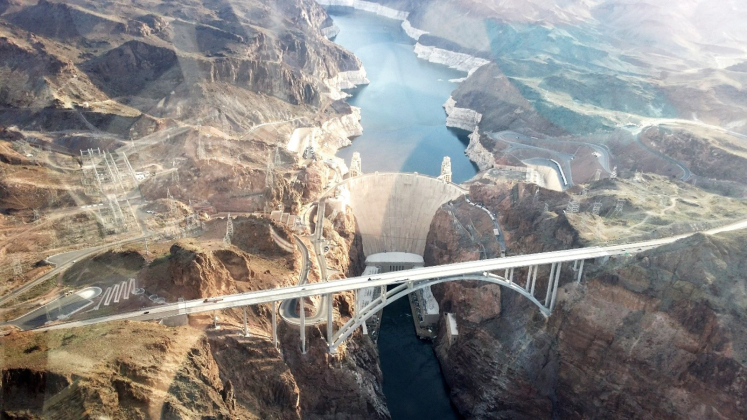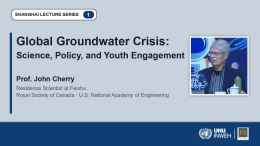Richmond Hill, Canada, 31 March 2025 – The American Society of Civil Engineers (ASCE) officially released its 2025 Report Card for America’s Infrastructure last week, providing a comprehensive assessment of the state of U.S. infrastructure. The report serves as a critical resource for policymakers, offering insights and recommendations to guide infrastructure investments and legislative priorities.
The Report Card is produced by the ASCE Committee on America’s Infrastructure (CAI), and UNU-INWEH is proud to highlight the contribution of Professor Farshid Vahedifard, Resilient and Equitable Infrastructure Lead at UNU-INWEH who was appointed to the committee last year. Prof. Vahedifard played a key role in drafting the sections on Dams and Levees, two crucial components of the nation’s water management and disaster resilience strategies.
“The ASCE’s 2025 Report Card for America’s Infrastructure and help shine a light on the urgent challenges and opportunities in managing the nation’s dams and levees. These structures are not just technical assets, they are deeply connected to the resilience and equity of our communities.” Said Prof. Vahedifard. “Through both the ASCE Report Card and our work at UNU-INWEH, we aim to support evidence-based decisions that ensure infrastructure investments protect all populations, especially the most vulnerable.”
The Dams section assesses the condition, maintenance challenges, and policy recommendations for the over 90,000 dams across the U.S. Similarly, the Levees section evaluates the reliability and safety of the 30,000 miles of levees protecting communities from flooding.
The ASCE Report Card is widely recognized as a key tool for assessing infrastructure performance and guiding decision-making at all levels of government. This year’s report reflects an upward momentum in infrastructure improvements, driven by increased investments and modernization efforts.
The full report is available on the official ASCE Report Card website.
Prof. Vahedifard also recently led the development of the UNU-INWEH Report on Inequity Behind Levees: The Case of the United States of America, which investigates the population characteristics of the communities living behind levees in the United States of America to highlight how the social, economic, and demographic disparities of population groups behind levees can make some of these communities highly vulnerable to floods and levee failures.
The UNU research team is available for interviews
Prof. Farshid Vahedifard, Lead, Resilient and Equitable Infrastructure, UNU-INWEH
farshid.vahedifard@unu.edu
Media Contacts
Sogol Jafarzadeh, UN and Government Relations Coordinator, UNU-INWEH
sogol.jafarzadeh@unu.edu




